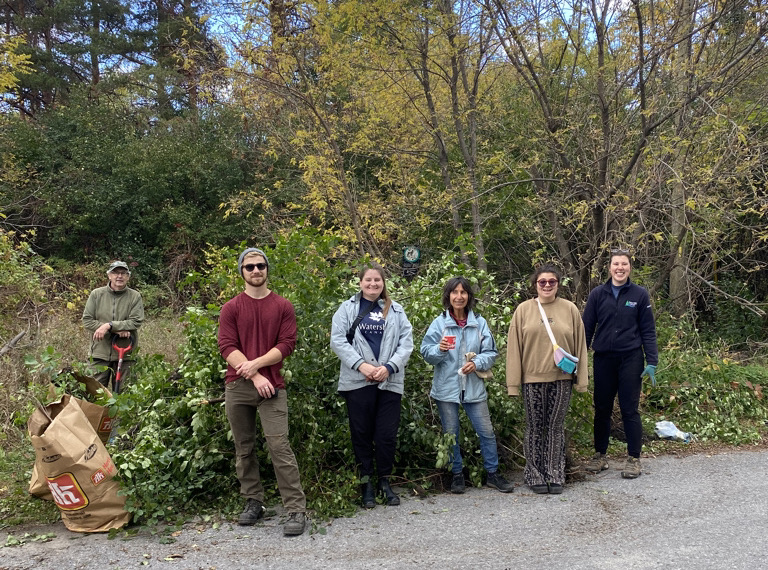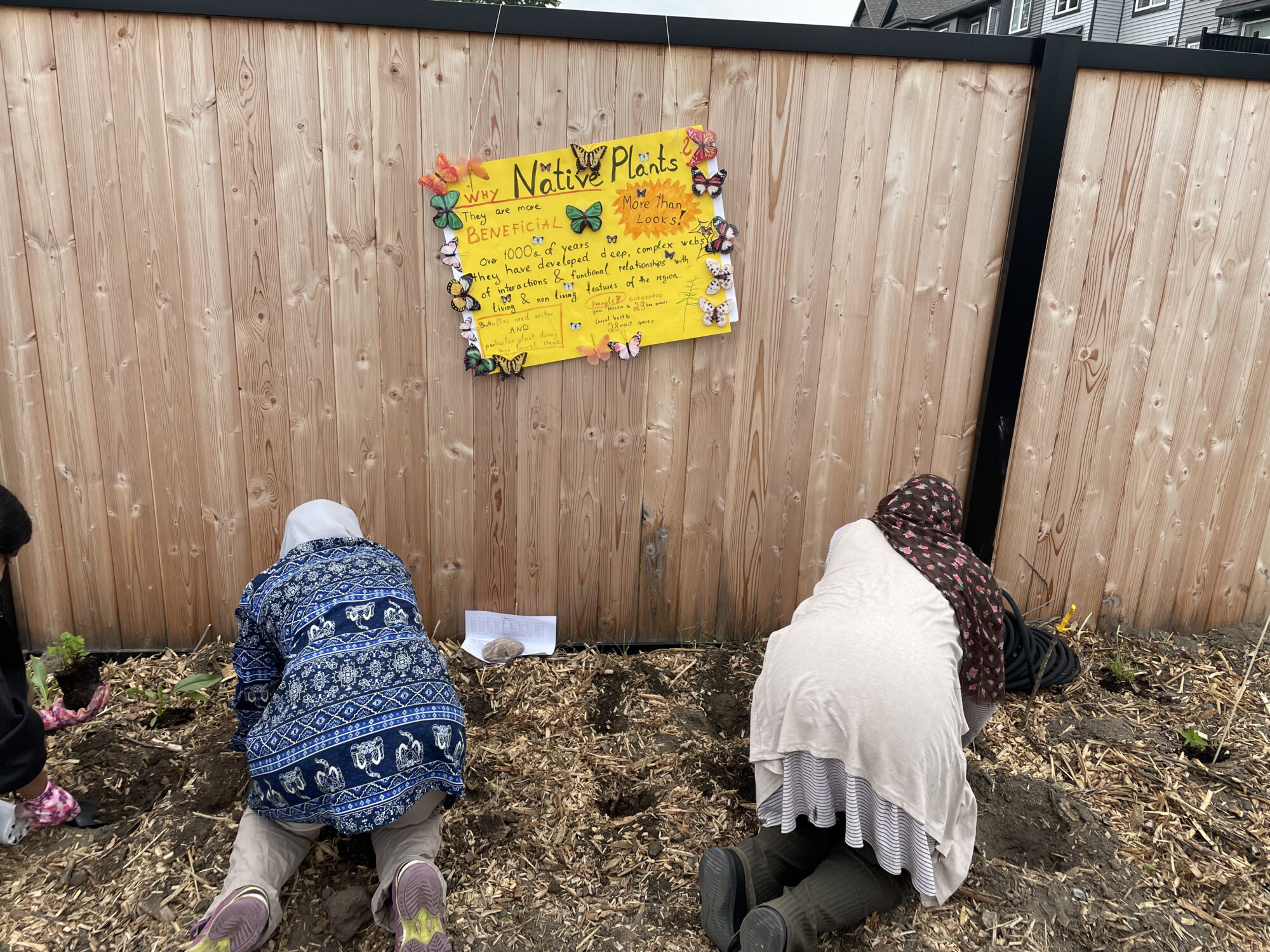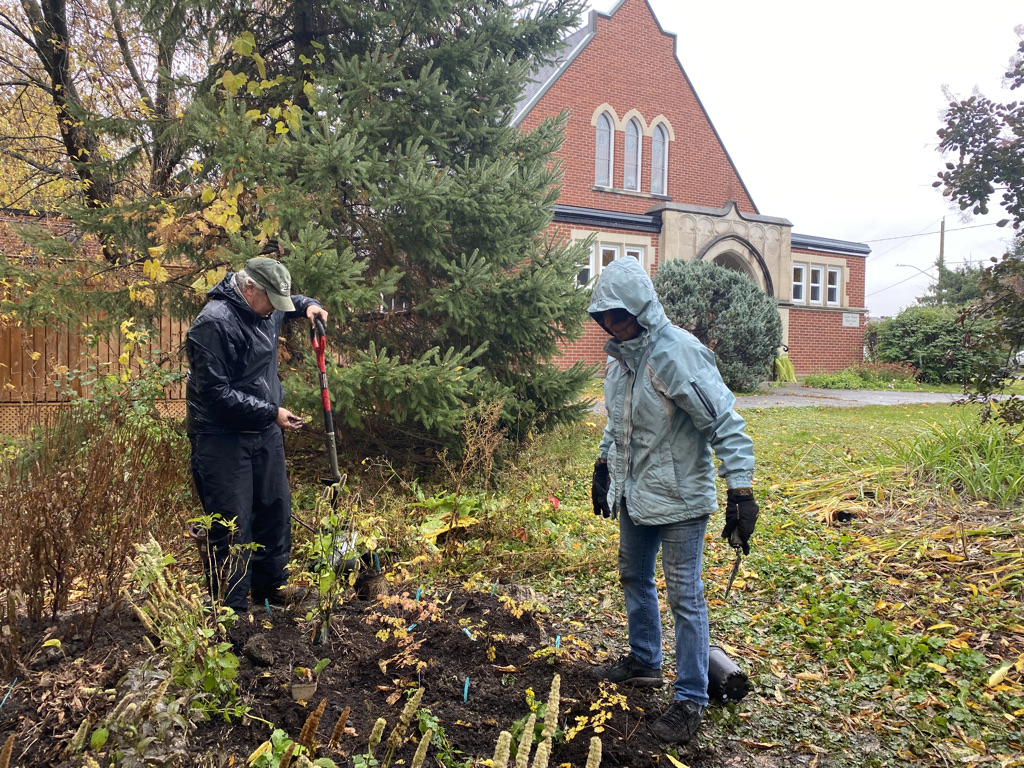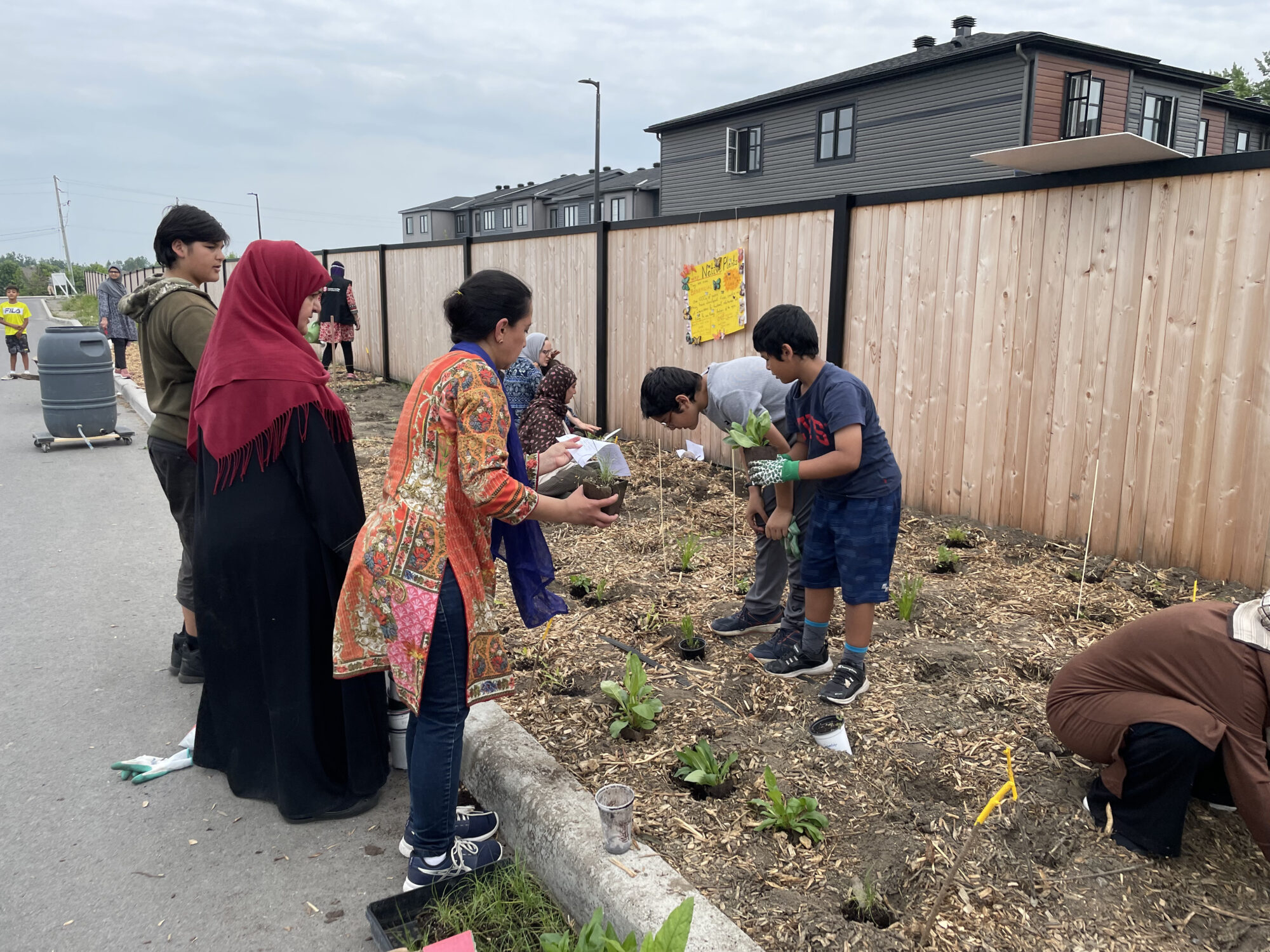Watersheds Canada and Greening Sacred Spaces Ottawa supported three Ottawa-area faith communities in planning and installing new green infrastructure sites in the fall of 2023. These included a pollinator garden at Carleton Memorial United Church, a pollinator garden at the Kanata Muslim Association, and a food garden at Rhoda Masjid.
The Project
Kanata Muslim Association improved a pre-existing garden area on their property in Kanata, removing invasive species and non-native plants and replacing them with native pollinator species. They also improved stormwater management on the property. To launch the planting, in collaboration with various community partners, they organized an event named the ‘Eco-Harvest Celebration.’ This neighborhood gathering included tours of the new pollinator garden and rainwater harvesting systems, educational sessions on native plants and seed collection, and children’s activities like rock painting, insect specimen collection, and flower pressing. Greening Sacred Spaces Ottawa and Watersheds Canada engaged with attendees about the Ottawa Faith Community Capacity Building Program, offering free resources, pollinator seed kits, and educational activity books for children.
Rhoda Masjid prepped their community garden plot at Just Food Farms in Ottawa for a future food forest planting. This plot, once an empty field, now features ground cover and fruit trees. It aims to provide food for many families in their community, with plans to add more plants annually.
Additionally, Rhoda Masjid organized a knowledge-sharing workshop on gardening. This event brought together industry experts, faith communities, Indigenous leaders, and local residents to exchange perspectives on gardening and sustainable yard stewardship.
Carleton Memorial United Church in Ottawa established a pollinator garden by replacing invasive garlic mustard, other non-native plants, and grass with perennial native species. Situated next to a public pathway, this garden allows the local community and the onsite daycare center to appreciate and learn about the benefits of pollinators. The project also involved removing invasive species and planting native shrubs near Nesbitt Creek. This effort helps native vegetation thrive by eliminating invasive competitors like Common Buckthorn, thus enhancing biodiversity. The new native shrubs provide vital habitat for insects, birds, and other wildlife.
Carleton Memorial engaged with the local community and partners by distributing pollinator seed kits and children’s activity books, including the onsite daycare, the Boys and Girls Club of Ottawa, local public schools, and the Debra Dynes Family House.
Lessons Learned
Organizing all three events involved significant engagement with the volunteer community. Event organizers recognized that organizing these projects demands significant time and energy from volunteers, on top of their everyday responsibilities. Advanced preparation and open communication were vital to the success of the projects. To support key volunteers, they were offered educational resources and assistance, which proved invaluable in the planning and preparation stages. Having multiple key volunteers helped distribute the workload more evenly. Additionally, flexible timelines were crucial for accommodating the faith communities, as many volunteers are unavailable during religious holidays or have reduced meeting frequencies at certain times of the year.
Final Thoughts
“These projects were very successful at engaging the community and allowing faith communities to connect with their neighbours. The free resources, kids’ activity books, and pollinator seed kits encouraged people to learn about sustainability and take action in their own homes. In addition, the native plantings and invasive species removals will continue to support local ecosystems and freshwater health for years to come. The native plants help create habitat, benefit pollinators, filter runoff, and control erosion.” -Monica Seidel, Communications and Fundraising Manager, Watersheds Canada
This project was supported by Green Communities Canada’s Living Cities Canada Fund.
To find plants that are adapted to grow in your region, or plant nurseries that sell native plants, visit the Network of Nature website at the links provided. Watersheds Canada also has a native plant database available here.





Recent Comments